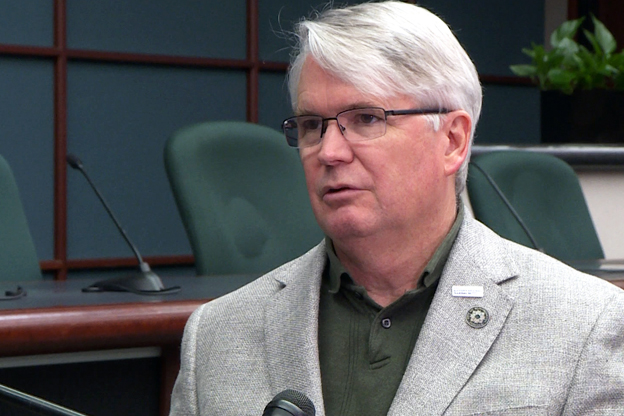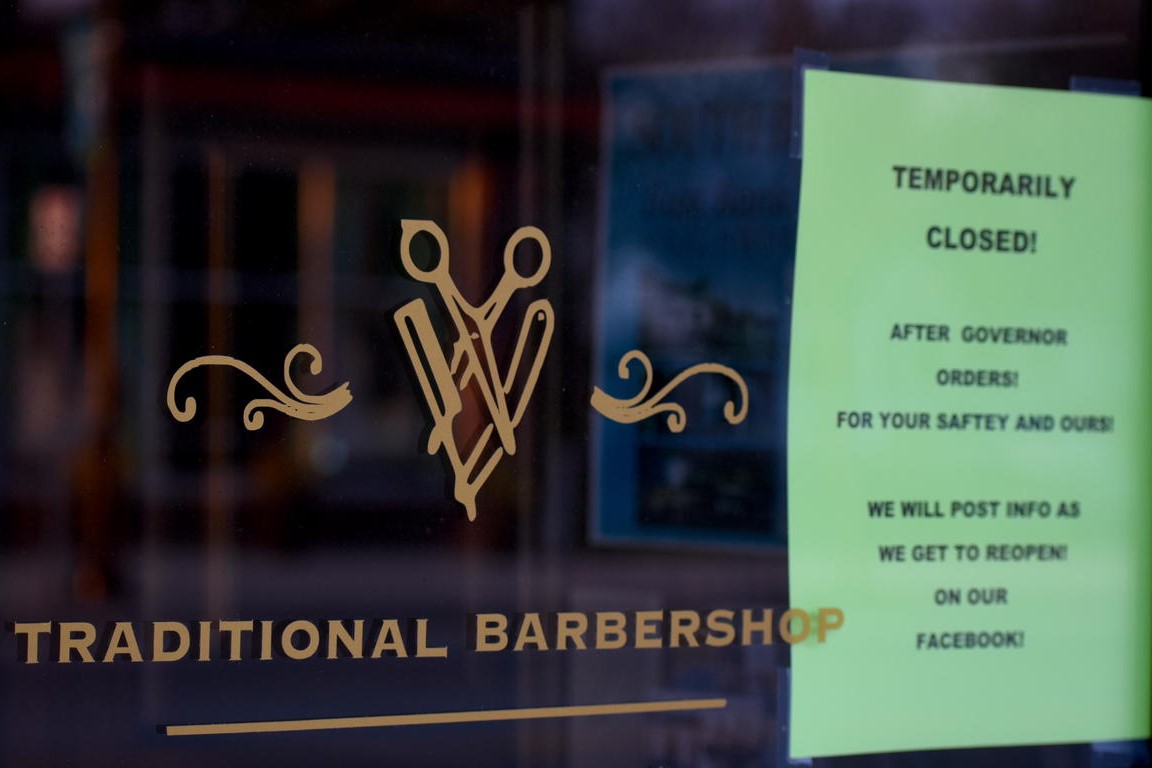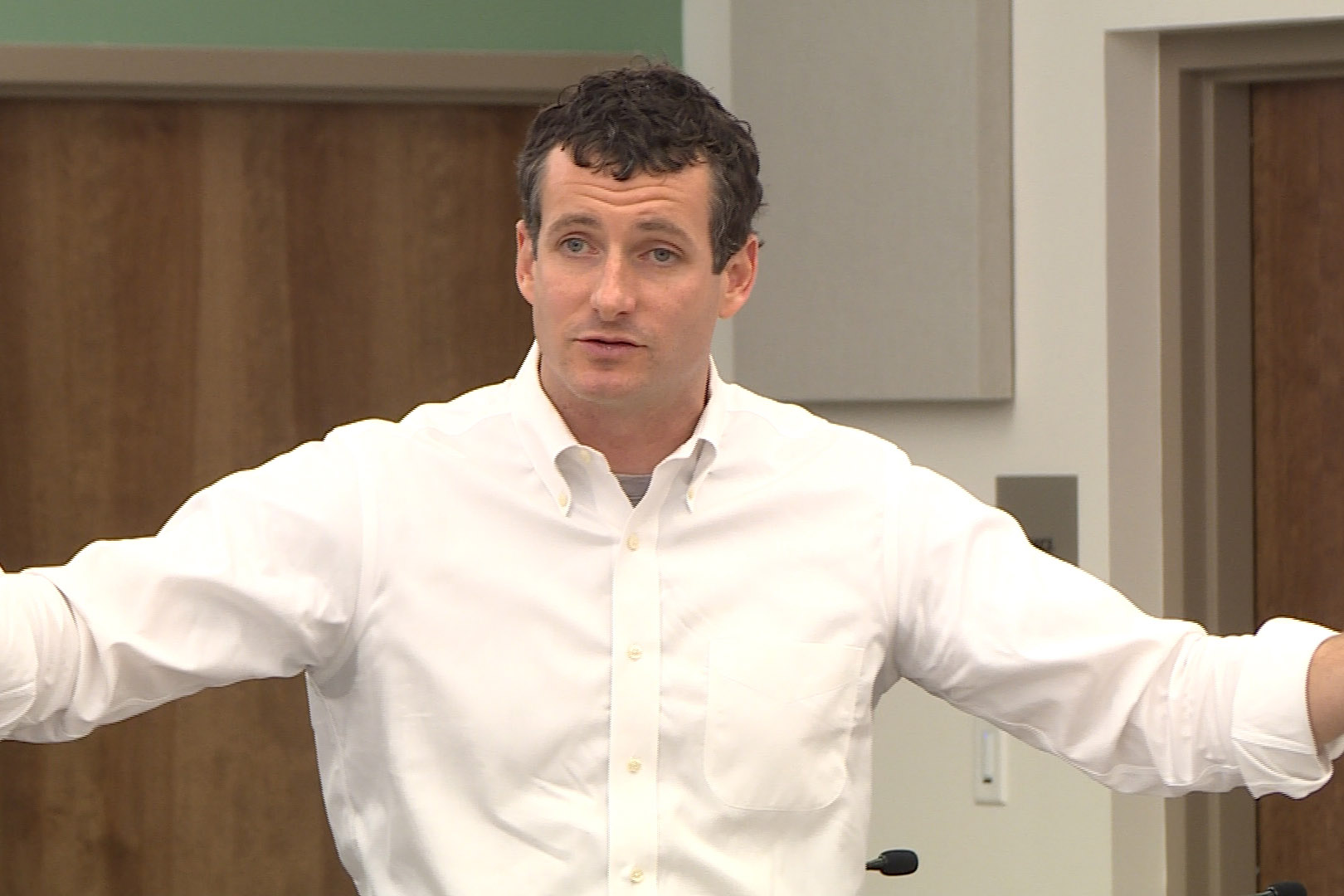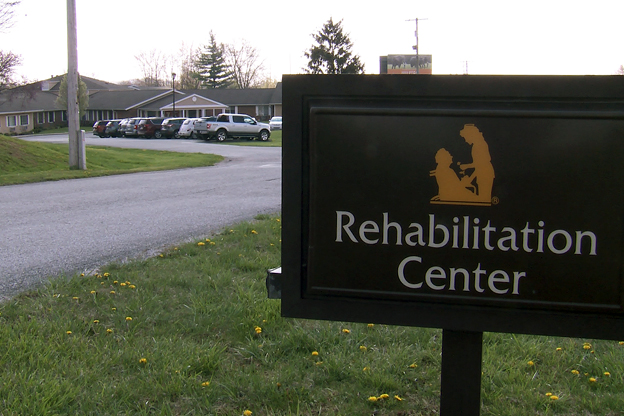
Bloomington Mayor John Hamilton (Zach Herndon, WFIU/WTIU News)
We get an update on coronavirus city response, medical contingencies, small business worries, state and federal assistance, and testing kits.
On this week’s installment of Ask The Mayor, Bloomington Mayor John Hamilton addresses these issues and more. Listen to the full conversation with Indiana Newsdesk anchor Joe Hren by clicking on the play button above, or read some of the questions and answers below. A portion of this segment airs 6:45 and 8:45 a.m. Wednesday on WFIU.
This conversation has been edited for clarity and conciseness.
Hren: Everything is escalating so quickly, this is recorded on Tuesday afternoon, so give us an update from a local perspective, what’s the reality on the ground?
Hamilton: We're really at the beginning of a pandemic. This virus has killed thousands of people around the world. It's killing people in America. It's now killed, as of this time that I know of, two people in Indiana. We're working very closely - city government, county government, school systems, Indiana University, IU Health and other healthcare providers to do the best we can in terms of our choices to minimize the spread.
I'm pretty confident the virus is in Monroe County. We don't have any confirmed case in Monroe County, but there have only been 160 people tested or so in the whole state of Indiana, but we need to assume that it's here because it probably is, and we're taking a lot of steps to diminish the impact.
Hren: Any updates on more testing kits?
Hamilton: That's a really frustrating area. This is not a time for finger pointing, but it's also not a time for bragging about what's going on. The testing has been a big failure in the United States. The World Health Organization says you should test everybody who you think might be infected and we just can't do it. So we're way behind the curve on that, we kind of have to assume you do have it and do the things that help protect us.
Hren: If emergency services are needed on a bigger scale, how can the city help – what are the contingency plans?
Hamilton: The first thing I'll say is, look to the health experts, but I know much of what they say is social distancing. It's difficult. It's changing our lives, but it's the right thing to do, primarily, so that we can avoid the crisis in a healthcare system. We will get through this. This is an infection. It takes some people from us, but we will get through it.
The key thing is can we do it in a way that lets our healthcare system protect us all with ventilators with hospital beds and those kind of things. From the city side and from government side, there's a lot we do to make sure we can keep operating because government needs to keep operating.
Hren: Are there any contingency plans that you know of going or working on for the the event that the hospitals get overcrowded?
Hamilton: There are people thinking about what happens if we need to create more hospital beds, more places where people can be isolated. You know, there are very vulnerable people in our community who don't have a place they can be isolated, and so I know we're working on thinking about how we can deal with that.
Hren: So many people are without jobs now are worried about no incomes and many small businesses might not be able to reopen, is that being thought about on the local level?
Hamilton: The economic effects are real, and we're already seeing them. This is one area where I do think the federal government and the state government needs to step up very quickly, to make clear that if you lose a job, or if you can't work because of illness or family demands, we will take care of you. So I know unemployment insurance, for example is critically important. That's why when you lose your job, the idea of the federal government looking at supporting a stimulus package to help people, not just institutions, but help people who are dealing with this is really important.
And I'm hopeful, and I'm confident that that will happen. But, you know, we could be in a recession right now, you often don't know you're in recession till later. We're certainly going to see some economic costs of this that causes stress with families and kids and hunger and housing. And we're doing a lot of things like not having utility cut-offs, and trying to make sure that no evictions, and protect people so that we can get through the health crisis and then help rebuild the economy.
Hren: What help are you lobbying for besides medical care, small businesses?
Hamilton: We haven't formally put a request in, if you will. I haven't called the governor. He's been pretty busy. And we're all trying to make do with responding as we can. But I do think what they are hearing and what they'll hear from us is unemployment insurance, making sure we get money to people who are suffering from the economic impact. The health system, of course, is job one. And I hope and will urge that the issue of ventilators and hospital beds and some of the changes at the national level to allow more flexibility of workers moving between states or different communities is really important.
But what we've seen, I think, over the last week or two, is a much more consistent response from cities and states and the federal government kind of catching up a little bit.
Hren: How does the coronavirus epidemic change how the sustainability tax - local income tax increase – and the convention center expansion moves forward?
Hamilton: Well, I think the way I would put that is, again, we're in a marathon, not a sprint, where we are. We're settling into the race. We know a lot of things we need to be doing as a community to protect against the health issues. But there's a lot of business that needs to keep going in the city. And I think it is important that we continue to do what we can that makes sense to protect our community as a whole. So those particular issues that you mentioned haven't been front of mind for me the last two weeks.
But I also think it's important as a community we recognize it's important to keep jobs going and to keep economic and sustainable living happening. This has been a challenge to us. But, you know, climate change is a challenge to us too. I was reading the other day about how there's some similarities between global you got to act sooner rather than later coronavirus versus climate change. It's gonna affect all of us across the planet. It's gonna affect the least able and least wealthy, the worst and first. And so it's important that we address this right now. But we got to recognize we're in a marathon and we have to keep our community improving.










